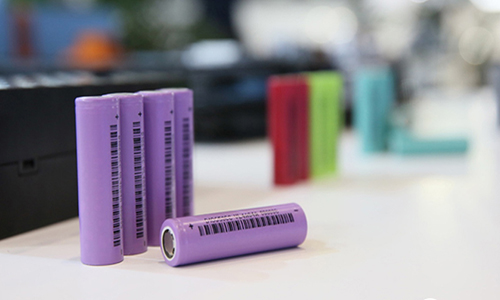Can Lithium Batteries be Recycled- Percentage and Disposal
May 25, 2020 Pageview:873
What is recycling of a battery?
Combustible material, including plastics and insulation, with a gas-fired thermal oxidizer, are removed by the recycling of batteries. The main part of recycling of a battery is that when a battery burns pollutants particles are prevented to enter into atmosphere and pollutants are removed by plant’s scrubbers.
After removing the pollutants into the atmosphere, the metal continues to heat so that metal is liquefied. Black slag is left on the top, while non- metallic substances are burned off after that slag which is left behind is removed by slag arm remover.
The liquid solution is used by some users so that the possibility of the reactive event can be reduced. The liquid solution may be replaced with freeze lithium-based batteries with liquid nitrogen; we have to face a problem when the lead-acid type is mixed with Li-ion starter batteries. We know it very well that Li-ion battery is highly explosive than lead-acid.
Several heavy metals and toxic chemicals are present in batteries, so there is need to dispose of these batteries in proper ways as we do recycling for other materials, so we may say that battery recycling aims is to minimize the number of batteries by disposing as municipal solid waste.
What percentage of a lithium battery can be recycled?
To meet the shortage of Lithium, There comes a need of recycling processes for lithium. Useful metals high-grade copper, aluminum, rare earths metal and nickel are main component of Lithium-ion batteries and lithium iron phosphate (LiFePO4).
Depending on separating technology, 25% to 95% of the material of Lithium-ion battery cell can be recycled. The Main purpose of recycling of lithium-ion battery is to remove the pollutants into atmosphere while keeping behind main constituent of lithium-ion battery like cobalt, copper, aluminum, graphite and manganese.
Separating technology used for recycling of lithium battery includes complex process chains, and safety issues.
Mostly steps used for recycling of batteries include
Discharging of battery
Battery system is disassembled
Mechanical process is used for recycling of lithium battery which includes sorting, crushing and sieving steps also.
Recovery of electrolyte
Hydrometallurgical step
Pyro- metallurgical step
Recycling of Lithium-ion battery includes several hazards like
Electrical hazard
Chemical hazard
Burning reactions may occur during recycling
Potential interactions also occur while recycling the battery
The factor which is panic during recycling of battery is
Water sensitivity:
Water reacts with lithium hexafluorophosphate, which is electrolyte material used in lithium battery. This electrolyte material after reacting with water forms hydrofluoric acid. This can be prevented by immersing the cell in solvent. So electrodes can be made ready for melting down and recycling.
In short, there are 50% - 95% chances that lithium battery can be recycled, If we overcome above mentioned problems.
How do you dispose of lithium batteries?
To power computers, cameras, cellphones, watches, and other electronics Lithium and Lithium-ion batteries are mostly used. Lithium present in these batteries is dangerous, so there is need to dispose of lithium batteries very carefully. We would suggest best and compile method to dispose the lithium batteries.
Keeping batteries away from regular recycling bin
Battery can spark, so it should not mix with other recyclables. Disadvantage of mixing batteries with other recyclables is that when it is recycled batteries can explode causing danger for workers at the facility.
Search a store which collects lithium batteries:
Recycling center can be searched online which collects lithium batteries. These stores receive batteries on the behalf of customer.
Ask community center for battery collection:
You can check community center where lithium batteries are collected. You can deposit batteries in their special recycling bin. Battery is collected on special day so keep in mind which is yours day to deposit battery in community center.
Household hazardous waste center for collection of lithium batteries:
Citizens can deposit lithium batteries in household hazardous center which are launched by local government. Sometimes, they collect the items once in a year. By visiting local government website you may able to reach household hazardous waste center.
Convenient mail-in program:
If recycling collection center is away you may use mail-in program which is to easy and helpful program. You can regularly recycle lithium batteries through mail-in program. Manufacturer is in direct connect through mail-in program. You can buy online batteries from recycling sites.
Lithium battery in a plastic bag:
Battery can give off gases so bag should be keep unsealed.
Separate bag should be used before mailing the lithium battery
Fully cover the battery by wrapping around the battery, while keeping bag unsealed.
Put the Lithium battery in a cardboard box:
Battery should not be stored in an airtight container as above it is mentioned battery gives off gases which may be dangerous. Box should allow air to escape through it.
How long will you buy a new lithium battery?
Lithium-ion battery can be ruined when voltage of lithium-ion cells goes beyond certain level. Lithium battery contains special sheets inside it when these sheets are damaged and the electrodes touch battery is heated very quickly. This may reduce long life for a lithium- ion battery.
You can observe the heating phenomenon of a battery if you ever use normal 9- volt battery in your pocket. Lithium-ion batteries get hot with in short period. So you don’t use battery by thinking that it will run for years. Best trick to run lithium batteries is that to keep these batteries cool as possible.
Lithium-ion battery life can be enhanced by using fast charging technologies and keeping battery away from overcharging.
Conclusion:
Technology emerged within few decades, while Lithium battery is playing a key role in vehicles and other electronics. So there is need to use lithium battery carefully.
- Prev Article: Solutions and Choices for Lithium Ion Batteries
- Next Article: Do Cell Phones Have Lithium Batteries-Types and Safety?
Leave Message
Hottest Categories
-
Hottest Industry News
-
Latest Industry News











